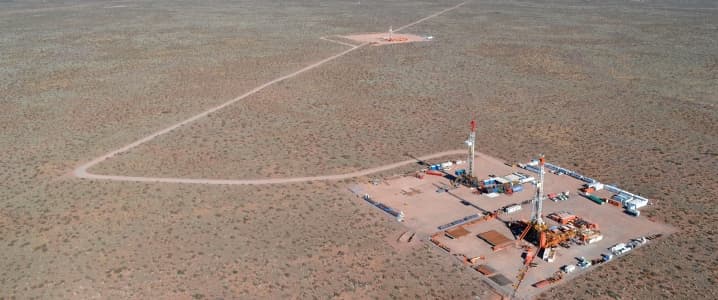The Argentinian energy and mining minister Juan Jose Aranguren has announced that the South American nation will be suspending its system of set domestic fuel prices next month, allowing local pricing to be ruled once again by the free market. The decision comes in response to the recent global uptick in oil prices, and is part of a continuing effort to woo international drilling interest and investment in Argentina.
The Argentinian government, in tandem with domestic oil producers and refineries, had been setting quarterly fuel prices within the country over the last year and a half to sustain investment in domestic drilling, despite a years-long global glut and low prices. The system was imposed last January in a treatise succinctly called the Agreement for the Transition to International Prices of the Argentine Hydrocarbons Industry. However, the system was not 100% controlled - it had previously allowed for some degree of market influence when prices are deemed to be high enough to allow free market input.
Now, as prices around the world recover and show significant promise of continued recovery, Argentina plans to turn over liquid fuel pricing entirely to the free market starting in October. This decision, however, could be easily and instantaneously overturned if oil pricing drops back to previous numbers, and the government remains in negotiations with the nation’s major fuel companies.
This being said, it’s looking hopeful that we won’t soon be seeing a significant downturn in fuel prices. This week American crude exports broke records thanks to strong demand, and national prices are rising steadily thanks to a decline in the previously exaggerated inventory in the wake of Hurricane Harvey. The developments in the U.S. are working in tandem with worldwide trends as OPEC applies strict caps on supply (partially in response to overproduction in U.S. shale) and even Russia is following the rules, bringing global prices to a two-year high.
Despite the Argentinian policy change and the global price swell, however, officials have warned that Argentinians should not expect to see an immediate rise in fuel prices. The best guesses suggest that the first major price differences will be seen toward the end of October, following domestic legislative elections.
Experts see this transition as part of a larger trend of rising prices and potentially lucrative investment opportunities in Latin America. In Argentina there’s been a major rush to develop the Vaca Muerta shale play (a massive area the size of Belgium) including heavy investment from supermajors. Argentinian president Mauricio Macri is a decidedly business-friendly leader, and attracting international investment has been a priority for the regime, leading to the aforementioned price-setting policies and other efforts to grow domestic energy production in order to minimize costly fuel imports.
It’s working. Last year Exxon said they may invest over $10 billion in Vaca Muerta shale projects over the next few decades. While the supermajors are focused on Vaca Muerte, however, there are other oil- and gas-rich regions of the vast country lying in wait and Argentina would only be too happy to see them developed as well. A few companies are already taking advantage of the opportunity. As an example, Canada’s PentaNova, also heavily involved in Colombia, has recently opened a Buenos Aires office and acquired Alianza Petrolera S.A., giving them 29 percenta working interest in the Llancanelo heavy oil block and 10% in Llancanelo.
Other companies that operate refineries in Argentina include state-owned YPF SA, and private firms Axion Energy Argentina SA, Royal Dutch Shell Plc and Pampa Energia SA. If and when fuel prices take a turn for the worst, these companies have influence in whether the Agreement for the Transition to International Prices of the Argentine Hydrocarbons Industry is reinstated, purposefully making Argentina an especially low-risk investment opportunity. With global prices going strong and vast untapped reserves patiently waiting for development, Argentina is poised to make oil boom headlines any day now.
By Haley Zaremba for Oilprice.com
More Top Reads From Oilprice.com:
- Citi: An Oil Supply Squeeze Is Inevitable
- Oil Prices Haven’t Plateaued Yet
- Trump Waives The Energy Market’s Least Favorite Law


















